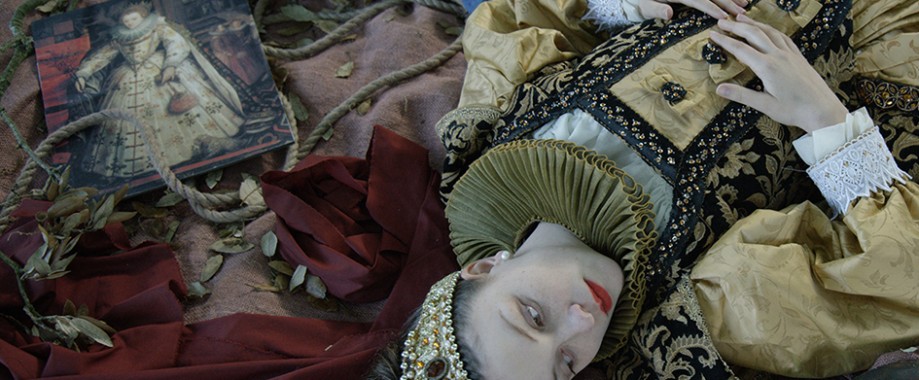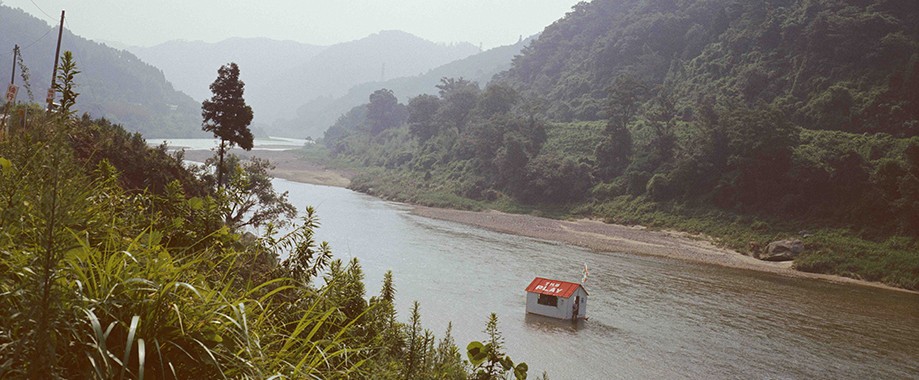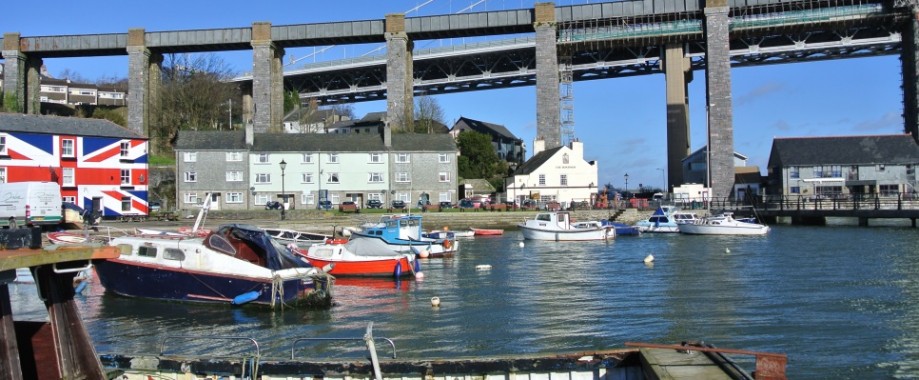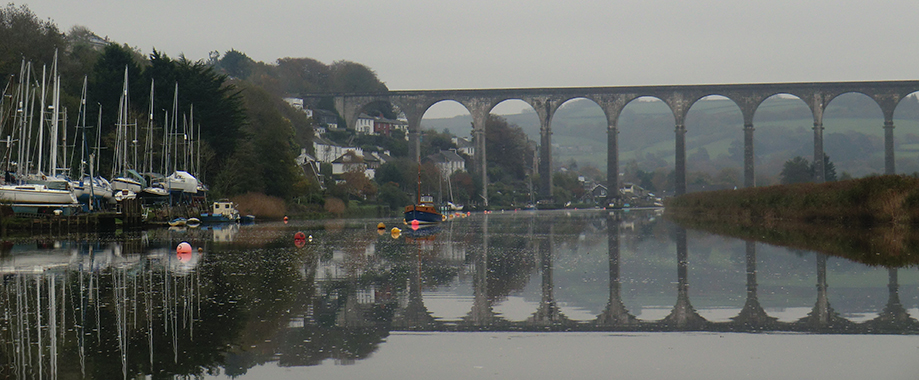
We are pleased to announce that Tropikos, John Akomfrah’s stunning RTP film commission, has been acquired by the Arts Council Collection to mark its 70th anniversary.
Described by Mark Brown, in The Guardian (15 January 2016), as “an experimental 16th-century costume drama filmed on the banks of the river Tamar … exploring the relationship
between waterways in south-west England and the slave trade”, Tropikos transforms the landscape along the Tamar Valley into the setting for a sixteenth-century port of exploration on the African continent in order to reveal the deep-rooted and darker history of the river.
Informed by historical accounts of the slave traders based in Plymouth, whilst also referencing classic literature, specifically Milton’s Paradise Lost (1667) and Shakespeare’s The Tempest (1611), the film is a fictional narrative, re-imagining some of the first “encounters with the other”, as Akomfrah puts it, in a period when Britain’s position as a global, seafaring power coincided with the enforced displacement of millions of African people across the Atlantic. Employing the tactics of Bertolt Brecht’s ‘theatre of alienation’, the artist presents a series of ‘tableaux vivantes’, which feel both archaic and imaginary, yet whose startling juxtapositions disrupt a simple identification with the characters depicted, demanding a conscious consideration of the constructed narrative. African and European locations blur, and characters and goods overlap with each other, as a representation of the faded traces of stories that we are asked to re-think afresh.
John Akomfrah (born 1957, Accra, Ghana) is an artist and filmmaker, based in London, whose works are characterised by their investigations into memory, post-colonialism, temporality and aesthetics, often exploring the experience of the African diaspora in Europe and the USA. Akomfrah was a founding member of the influential Black Audio Film Collective, in 1982, along with the artists David Lawson and Lina Gopaul (amongst others), with whom he still collaborates today, as Smoking Dogs Films.
On the 15th January 2016 the Arts Council Collection announced that Tropikos was one of eight new commissions acquired by the collection in order to celebrate it’s 70th anniversary. The commissions, also including works by Hurvin Anderson, Marvin Gaye Chetwynd, Ryan Gander, Mark Leckey, Heather Phillipson, Keith Piper and Katie Paterson, will all go on display in 2016 before joining the collection.
Tropikos (2014) – directed by John Akomfrah, and produced by Smoking Dogs Films (Lina Gopaul and David Lawson) – was commissioned by the River Tamar Project, and premiered at Devonport Guildhall in October 2014, as part of the It’s All About the River film festival. The commission was made possible with support from Plymouth University and Arts Council England, with kind contributions from the Elephant Trust and the George Melhuish Bequest and Smoking Dogs.

We are delighted to announce that curator and writer Tom Trevor has been appointed as the new Artistic Director of the River Tamar Project.
Tom has curated projects both internationally and within the South West. He is currently Guest Curator at the Whitechapel Gallery in London and was most recently Artistic Director of the 4th Dojima River Biennale in Osaka, Japan, taking place over the summer of 2015. Entitled Take Me To The River, this large-scale project included artists from eight different countries, with renowned figures such as Hito Steyerl, SUPERFLEX and Shimabuku showing alongside emerging artists, like Shitamichi Motoyuki, Aki Sasamoto and Yuken Teruya. One of the groups he worked with is The Play, an artists’ collective from the Kansai area of Japan formed in 1967, which Tom commissioned to reactivate a project from 1972, IE: The Play Have a House (pictured), floating down the Yodogawa river from Kyoto to Osaka.
On the news of his appointment, Tom said: “I am delighted to be taking on this role at an exciting time for the contemporary arts in Plymouth, and to be returning to the South West. My involvement with the River Tamar Project builds upon a long-standing interest in rivers and the cultural life that develops around them. I am really looking forward to engaging with the different communities based along the Tamar, and to commissioning artists’ projects in relation to this historic context and the people who live and work there. I am also keen to explore the possibilities for establishing an international network of river projects in the lead-up to the Mayflower 400 celebrations in 2020. There is enormous potential for projects in Plymouth and the Tamar area, and a great spirit of collaboration, so it will be exciting to work with partners in the city, as well as regionally, nationally and internationally, to develop a world-class project that is relevant and distinctive to the locality.”
Until October, Tom was also curatorial consultant to ARoS Museum, in Denmark, setting up a new triennial for Aarhus 2017, European Capital of Culture. Other recent projects he has worked on include a commission by, It’s All About the River artist, John Akomfrah at the 56th Venice Biennale in 2015, and the exhibition Black Sun, co-curated with Shezad Dawood, at the Devi Art Foundation, in Delhi, India, in 2014. Previously Tom was Director of Arnolfini in Bristol from 2005 -2013, Associate Curator of the Art Fund International collection at Bristol Museum from 2007-12, and Director of Spacex in Exeter from 1999-2005. He is originally from Devon, and has family roots in Cornwall.
The River Tamar Project has also welcomed back Producer, Phil Rushworth, who helped deliver last year’s It’s All About the River film festival. As an independent curator and visual art producer based in Plymouth, Phil has a special interest in working with rural communities, particularly in delivering contemporary arts to new audiences. Since 2009 she has worked on a number of projects across the South West, initiating Confluence (2013), a public art programme for Falmouth University and the University of Exeter, and 24-Hour Comic Etc. (2011), a series of 24 hour community events across Cornwall. She also produced the Falmouth Convention (2010), the Penzance Convention (2012) and the Cornwall Workshop (2013), working with the Cornubian Arts & Science Trust (CAST), based in Helston. She is originally from Cornwall.
The River Tamar Project team are now back in the office and will be working towards future events and artists’ commissions. Tom will be leading on a six-month period of research and development. One of the first tasks will be to update the River Tamar Project website. In the meantime, please stay connected with us through social media and look out for exciting future developments in the newsletter.

During my short time at the River Tamar Project, I have already gone from translating a 16th century royal commission of inquiry that documents the contents of a slave ship’s cargo hold, to delving into a Cornish mine in order to explore the heritage of the site and the affect the mining industry had on the local communities based around them.
I have a great interest in films and video-work and, as a second year fine art student at Plymouth University, I am keen to start using it more in my own practice. With this in mind, I jumped at the chance to intern with the River Tamar Project after hearing their Artistic Director, Paula Orrell, speak about their upcoming plans for the It’s All About the River film festival.

As a relatively new member of the River Tamar Project team, I’ve had the pleasure of getting to know the River Tamar and surrounding areas over the past few months. Although my first proper experience of the river was in the midst of December, travelling upstream by boat on a cold, wet and drizzly day, I was drawn to its beauty which almost belies its industrial past. Reflecting on those winter trips from the relative warmth of the team office in spring-time, I am looking forward to getting stuck into the exciting events we have planned for 2014.
This week has seen the touring exhibition for The Observatory design competition entries installed at the Tamar Valley Centre in Gunnislake. Movable, flexible and re-configurable, The Observatory will be an innovative, temporary space where artist and audience can engage with each other and the countryside outside of a conventional gallery space. The final structure is due to be sited on the banks of the River Tamar, so the touring exhibition was a great opportunity for local people to view the shortlisted entries and provide feedback on their favourite designs. I think we’ll all be keeping an eye out to see what the judges’ final decision will be when the winner is announced in April.
With the buzz around The Observatory competition coming to an end, the team are refocusing our efforts on our showcase for this year: the It’s All About the River film festival. Taking place in September – October, the festival will be celebrating the culture, heritage and future of the River Tamar. It’s been wonderful fun travelling to all of the locations the festival will visit and meeting with the people who are lucky enough to call the Tamar Valley their home; however it is now time to get down to the hard graft. Plans are strictly under wraps for the moment, but I can let slip that they involve a whole host of different films from new artists commissions, rarely seen archive film and some classic cinema, showing on large open air screens and in more intimate town halls and pubs. Look out for more details in the coming weeks!